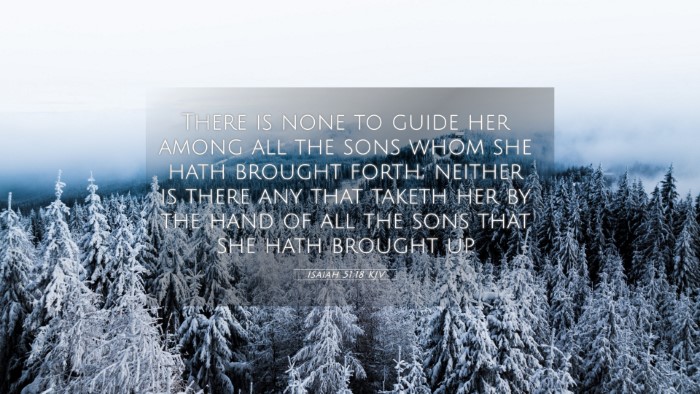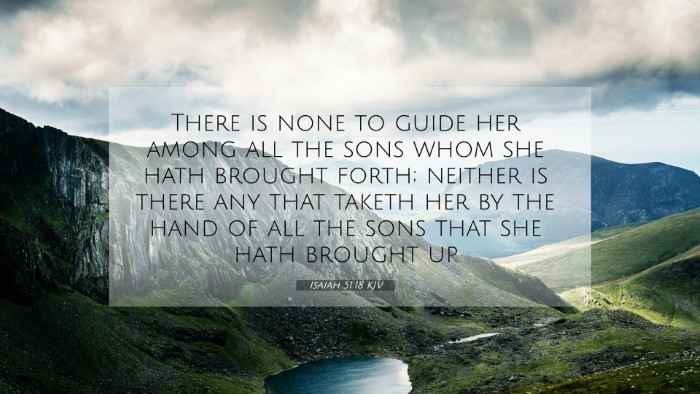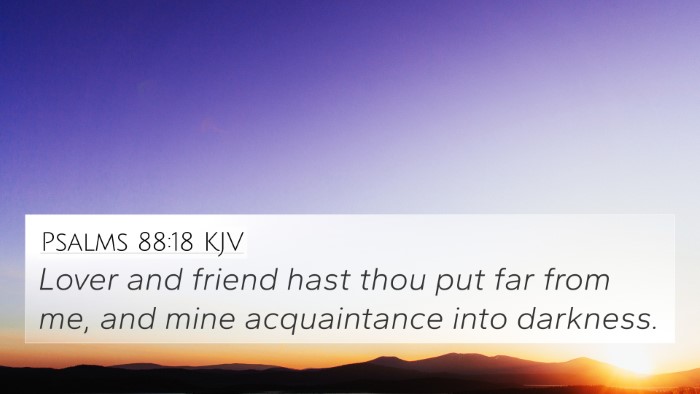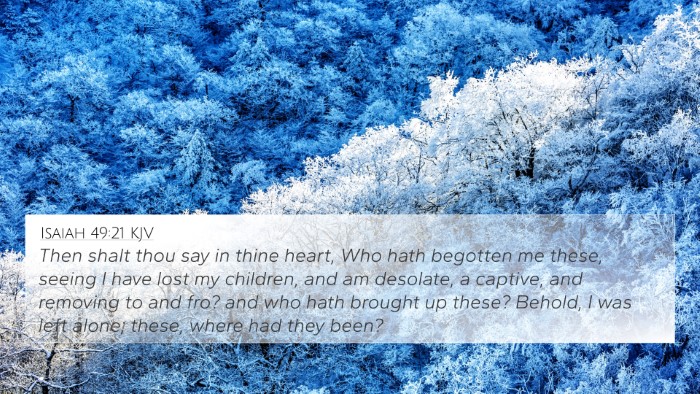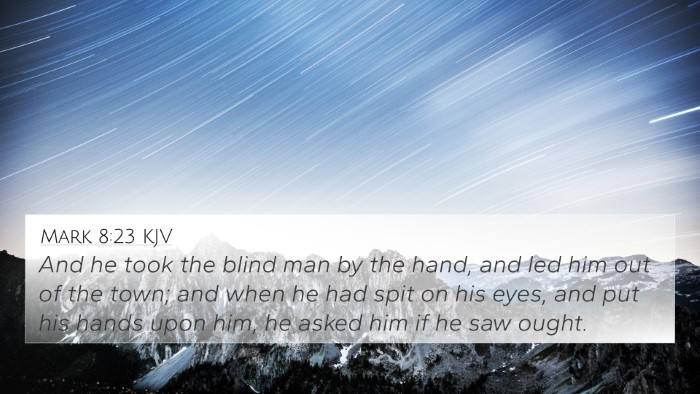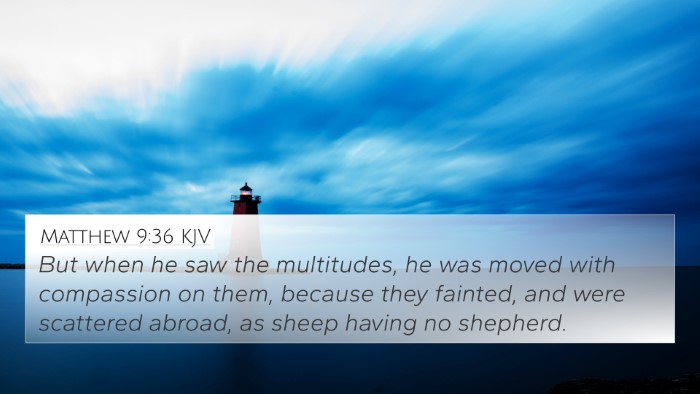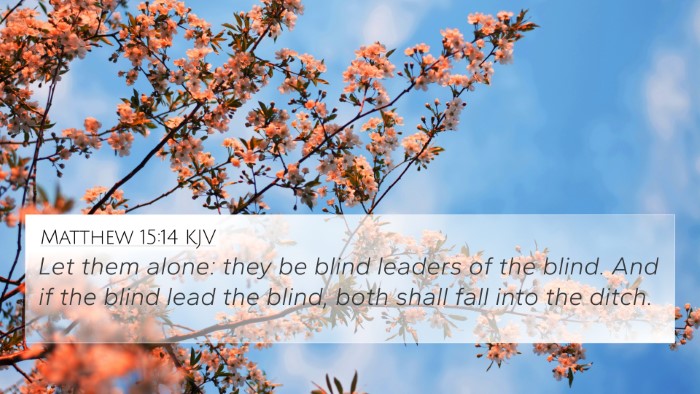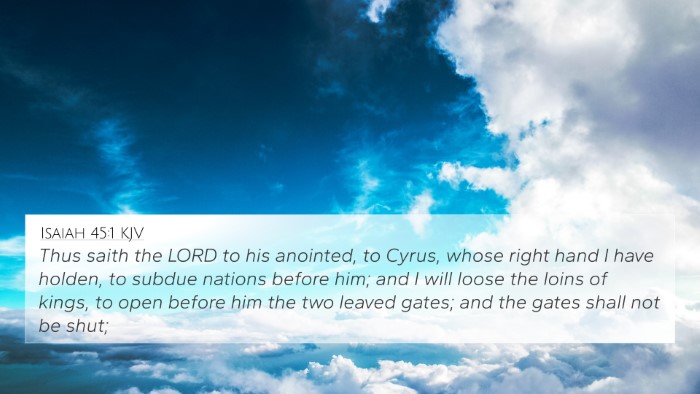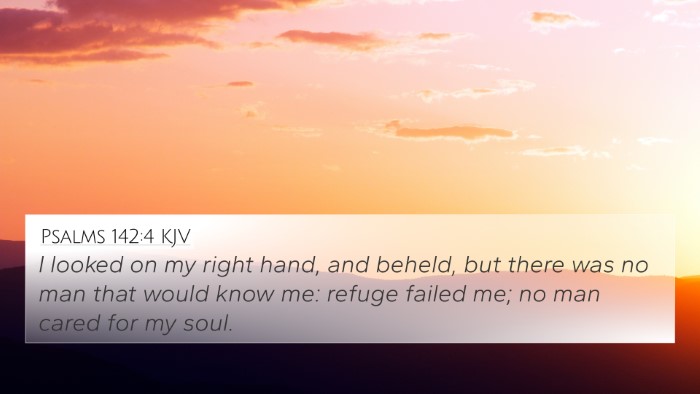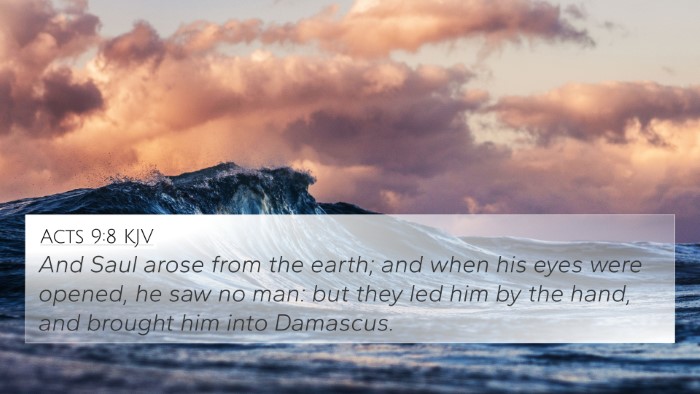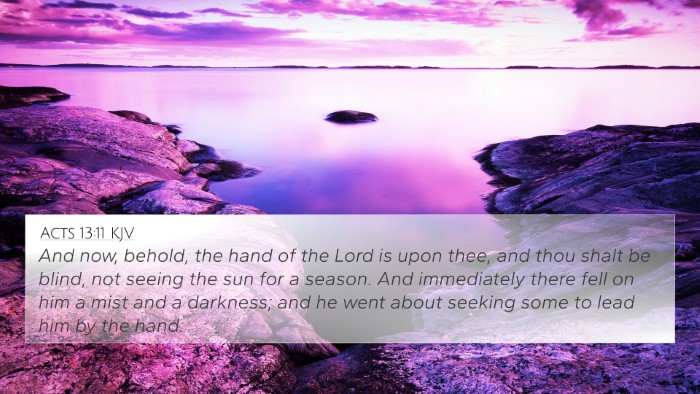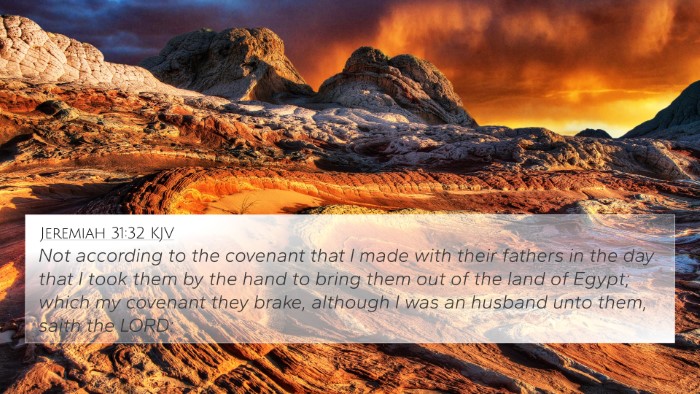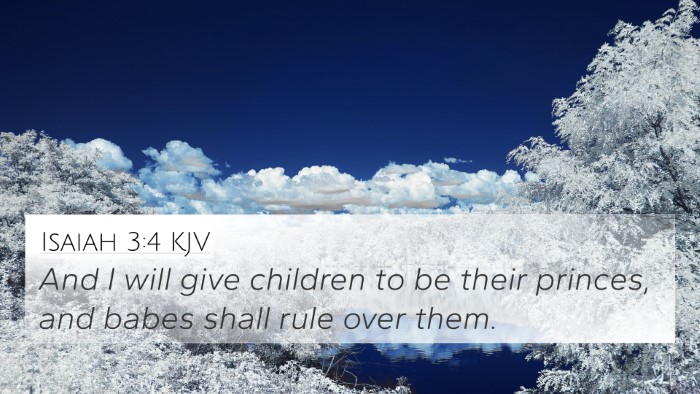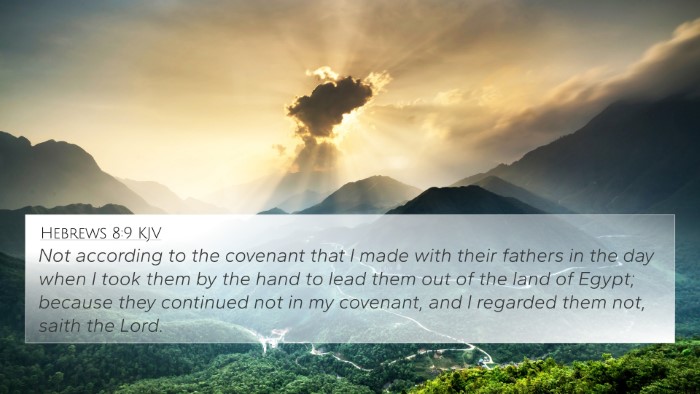Understanding Isaiah 51:18
Isaiah 51:18 states, "There is none to guide her among all the sons whom she hath brought forth; neither is there any that taketh her by the hand of all the sons that she hath brought up."
Verse Context
This verse is part of a passage where God is addressing Zion, represented as a mother who has lost her children. The imagery reflects a deep sense of abandonment and loss, illustrating the plight of God's people who feel forsaken.
Commentary Insights
This verse has been interpreted in various ways by well-known commentators:
- Matthew Henry: He emphasizes that the lack of guidance for Zion is a tragic state of affairs. The people are depicted as weak and leaderless, and Henry points out that this mirrors the condition of the Church when it strays from God's guidance.
- Albert Barnes: Barnes explains that the "sons" refer to the offspring of Zion, symbolizing the leaders and the faithful left behind. He argues that the absence of guidance reflects a divine punishment for turning away from God and highlights the need for repentance and return to divine counsel.
- Adam Clarke: Clarke interprets this verse with a focus on the historical context of Israel's exile. He suggests that the despair in Zion's heart is palpable and calls for recognition of the need for divine intervention and support during times of desolation.
Thematic Connections
Isaiah 51:18 connects with several other Bible verses that portray similar themes of guidance, abandonment, and restoration.
- Psalm 107:4-5: Describes wanderers in the wilderness, hungry and thirsty, searching for guidance.
- Isaiah 54:1: Speaks of the desolate woman being comforted, highlighting God's promise of restoration.
- Lamentations 1:17: Expresses Israel's deep longing for help amidst their desolation.
- Ezekiel 34:5: Refers to God's people as scattered without a shepherd, emphasizing the need for true guidance.
- Matthew 9:36: References Jesus seeing the crowds, filled with compassion, because they were harassed and helpless, likening them to sheep without a shepherd.
- John 10:14: Jesus declares Himself as the Good Shepherd, providing guidance and care for His flock.
- 1 Peter 5:7: Encourages believers to cast their cares upon Jesus, who will shepherd them.
Practical Application
For modern readers, Isaiah 51:18 serves as a powerful reminder of the need for spiritual guidance in times of distress. It calls individuals to seek God fervently, reflecting on their spiritual leadership and community. Understanding the connections between this verse and others enhances the depth of its message.
Cross-Referencing Biblical Texts
Cross-referencing is an essential tool for biblical study, as it helps identify themes and connections across the scriptures. Here are some helpful resources and tools:
- Bible Concordance: Useful for looking up individual words and finding related passages.
- Bible Cross-Reference Guide: Provides lists of verses that correspond thematically or contextually.
- Cross-Reference Bible Study: Techniques for deepening understanding by exploring related verses.
- Bible Reference Resources: Enhanced tools for better engagement with scripture.
Conclusion
Isaiah 51:18 encapsulates a profound spiritual reality—the need for guidance and the consequences of its absence. The verse, along with its cross-references, invites readers to explore deeper meanings and seek the ultimate guidance found in God's Word.
Related Keywords
This analysis links to themes of Bible verse connections and scriptural cross-referencing, encouraging study and interpretation for greater understanding of Jesus as the guiding Shepherd of our lives.

